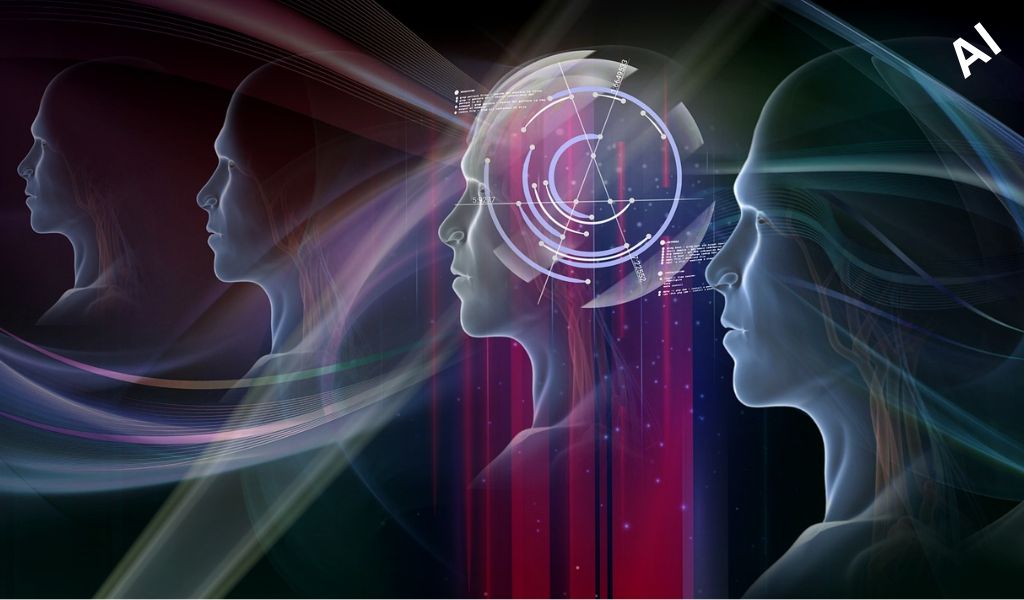Back in medieval times, peasants worked hard, making advancements in farming, especially with tools like the plough. But did they get rich from their innovations? Nope. The bigwigs of the time pretty much used all that extra wealth to build fancy cathedrals.
Fast forward to today, and some economists are warning us that we might see a repeat of that story, but with artificial intelligence (AI) as the modern plough.
Simon Johnson, a top-brain at MIT’s Sloan School of Management, breaks it down like this: AI is a game-changer. But there’s a catch. We’re standing at a crossroads, trying to figure out whether AI will be a goldmine for everyone or just a select few.
Now, some folks are super pumped about AI. McKinsey, a big-shot consultancy, dropped a prediction in June that AI could bring in a whopping $14 to $22 trillion every year. Just to give you an idea, that top number? It’s basically the size of the entire U.S economy!
There are those who even dream bigger, thinking AI and robots might be our ticket out of the daily grind. Imagine a world where machines do the boring stuff, and we all just kick back, getting creative and enjoying life. But not everyone’s on board with this rosy picture. There’s a real fear that AI could swipe jobs left, right, and center. Even Hollywood’s getting jittery – actors went on strike in July, worried they might get replaced by their AI doppelgangers.
What Productivity Gain?
Looking back, every time we’ve had a big technological leap, the effects have been a mixed bag. Some folks end up benefiting a lot, while others, well, not so much.
Simon Johnson and Daron Acemoglu, two brainy economists from MIT, dove deep into this in their recent book. They took a look at a thousand years of tech innovations, from the old-school plough to today’s self-checkout machines, and tried to figure out how they shaped jobs and wealth distribution.
For instance, while the spinning jenny revolutionized the textile industry back in the 18th century, it also meant people had to slog through longer hours in pretty tough conditions. And here’s a darker twist: mechanical cotton gins, which made processing cotton way easier, also played a role in the expansion of slavery in the American South during the 19th century.
Then there’s the Internet. Sure, it’s opened up loads of new job opportunities, but a lot of the big bucks it’s made have ended up in the pockets of just a few tech moguls. Plus, despite all its promise, the boost in productivity the Internet was supposed to give us has kind of fizzled out in many areas.
A report from French bank Natixis dropped a reality check on us. They pointed out that while the Internet has touched nearly every aspect of our lives, it hasn’t really transformed every sector. And many jobs that sprang up because of it, like those in online shopping delivery, don’t require much in terms of skills.
So, when we talk about the potential of AI, Natixis is basically saying, “Hold up, let’s not get too carried away about how it might boost work productivity.”
But here’s another twist. In a world where everything is interconnected, AI’s benefits might not be spread evenly. Some countries might end up lowering their standards to attract AI investments, leading to a “who-can-go-lower” competition. Meanwhile, others might be left in the dust simply because they don’t have the fancy tech infrastructure needed for AI.
Stefano Scarpetta from the OECD puts it this way: to play in the AI game, you need some serious computer power. He’s pushing for more global collaboration, suggesting that the big discussions happening among the G7 countries about AI should expand to include even more nations.
Worker Power
Innovation isn’t the real challenge. The true test lies in ensuring that everyone benefits from it, which is where the role of politics becomes crucial.
Take, for instance, the observation by MIT’s Johnson about the introduction of railways in 19th century England. This technological leap coincided with a surge in democratic reforms, ensuring that the benefits of faster transport and leisure travel reached many, not just a few. This pattern of widespread technological benefits was consistent up until the 20th century. However, Johnson believes that things took a different turn with the rise of aggressive shareholder capitalism over the past 40 years.
Consider the automated self-checkout machines we see in stores. While they streamline the buying process, they haven’t necessarily made groceries cheaper or significantly enhanced the shopping experience. Their primary advantage? Reducing labor costs to boost profits.
This shift has raised concerns among worker groups, especially given their diminishing influence since the 1980s. There’s a growing fear that AI could undermine workers’ rights, particularly if machines start dictating employment decisions without human oversight.
Mary Towers from Britain’s Trades Union Congress emphasizes the role of unions in this evolving landscape. She believes that unions should have the right to engage in discussions and negotiations regarding the integration of technology in workplaces.
But this is just the tip of the iceberg. The real impact of AI on our economic lives will be influenced by a myriad of factors. These range from maintaining competition among AI providers to ensuring workers are re-trained to adapt. An OECD survey highlighted both the pros and cons of AI. While AI might enhance job satisfaction, health, and salaries, it also brings concerns about privacy, potential biases, and overworking.
As Johnson aptly put it, the real question is whether AI will deepen existing inequalities or pave the way for a fairer society.
Subscribe to Our Latest Newsletter
To Read Our Exclusive Content, Sign up Now. $5/Monthly, $50/Yearly
Categories: Technology
Source: vtt.edu.vn
